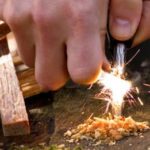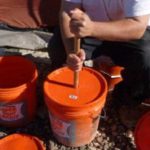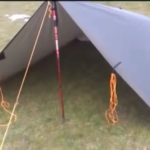
Most people automatically experience an initial feeling of shock, disbelief or denial as soon as an emergency strikes. One theory is that this is the brain’s way of helping us to minimize shock so that we can detach from the situation. However, denial can also delay or cloud the decision-making process that needs to start as soon as disaster strikes. Many have died because they made stupid choices in the seconds surrounding a crisis, and a lot of these choices stemmed from having a sense of denial that something bad was happening.
Shock to the System
Anyone who has been in an accident can vouch for the sense of disbelief over it actually happening. It is an abrupt shock to the system, and it takes a few moments to snap out of it and realize that the flow of the day has been disrupted. However, once the sense of realization sets in, we go into survival mode and start relying on automated responses that we’ve been conditioned to utilize. We call 911, we check for injuries, we look at the damage, we take pictures and contact the insurance company or loved ones. These actions come from our experience and training, but they don’t start to emerge until the denial stage has passed.
The same kind of behavior can be seen when people rush into their burning homes or vehicles to grab valuables. They are in denial over the deadly nature of fire as their focus is set on trying to maintain a sense of normalcy and routine. The need to be in control during a chaotic situation often manifests itself in dangerous ways.
Beat Denial With Truth

Denial comes from inexperience. We have a certain set of beliefs that govern our lives on a day to day basis, and our first response is to resist anything that challenges them. We also have a tendency to deny realities when we don’t want to face the fact that our thinking about something is wrong. We also deny things when we try to believe that something is true in order to protect ourselves from being disappointed, hurt or getting a bruised ego. We generally give up denial when we start to accept things for as they are and learn to cope with the consequences, and many of these moments happen quickly without much conscious thought.
The best way to avoid getting lost in denial is to accept truth for what it is. We have fire and tornado drills so that kids will learn to realize the danger and immediate need to seek refuge. We practice and train in order to make the response rapid and automatic. The result is that kids go to the appropriate area without delay as opposed to getting lost in confusion and wondering what to do.
One of the first things that first responders learn is to take a step back and assess a situation before reacting when they arrive on the scene of an emergency. This is drilled into them so they will evaluate the situation and develop a plan without being emotionally involved. This only takes a few seconds, but it helps to bring order out of chaos and keeps them from being shocked with what they may encounter.
Practice Makes Perfect

Awareness, preparation and training are the key weapons to use to beat back the deadly nature of denial. This involves understating the risk and danger associated with a situation and knowing what to do when it happens. We follow this up with experience so that our brains develop an understanding of risk that will spark an appropriate response.
Most people who prepare for disaster are aware of the signs as well as the potential impact and consequences of calamitous events. This awareness helps to identify a threat, evaluate its capabilities and accept the aftermath. This also helps to defeat the denial phase during a crisis because the truth is already known, and buys precious time and promotes better decision-making.
Preparing for disaster also involves developing a response and thinking through options to use once the dust settles. It’s not enough to know that something bad is or has just happened. We also need to know how to respond in order to give the brain an alternative to denying things. This is why practicing, training, drilling, talking and running various contingencies through the mind is so important. You are teaching yourself what to do and how to do things during an emergency.
Give some thought to situations that you have not really prepared to deal with. Think about what will happen as you respond before, during and after the situation. You will notice that that buzz of initial fear and uncertainty is replaced with peace and confidence because you overcame denial and developed solutions. Now imagine how helpful that can be during a real life and death situation.
Denial is a powerful aphrodisiac that needs to be quelled in survival situations. Start beating it back now by becoming more aware, accepting and responsive to potential dangers by running scenarios through your head. Take time to walk through situations whenever possible in order to be able to rehearse and practice what you will do as well. The best way to overcome denial is to deal with realities now instead of during emergencies, and it’s never too early to get started.














